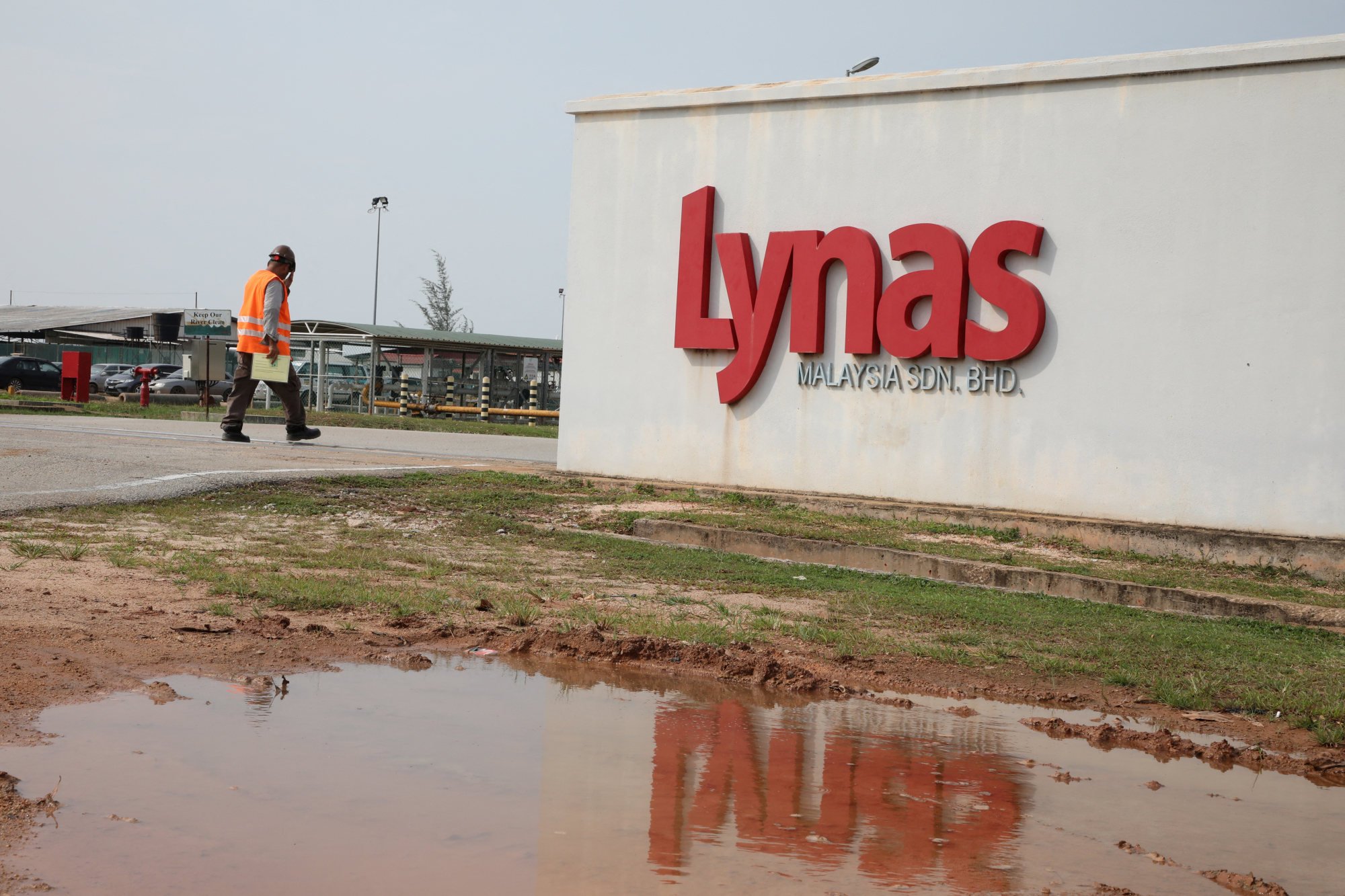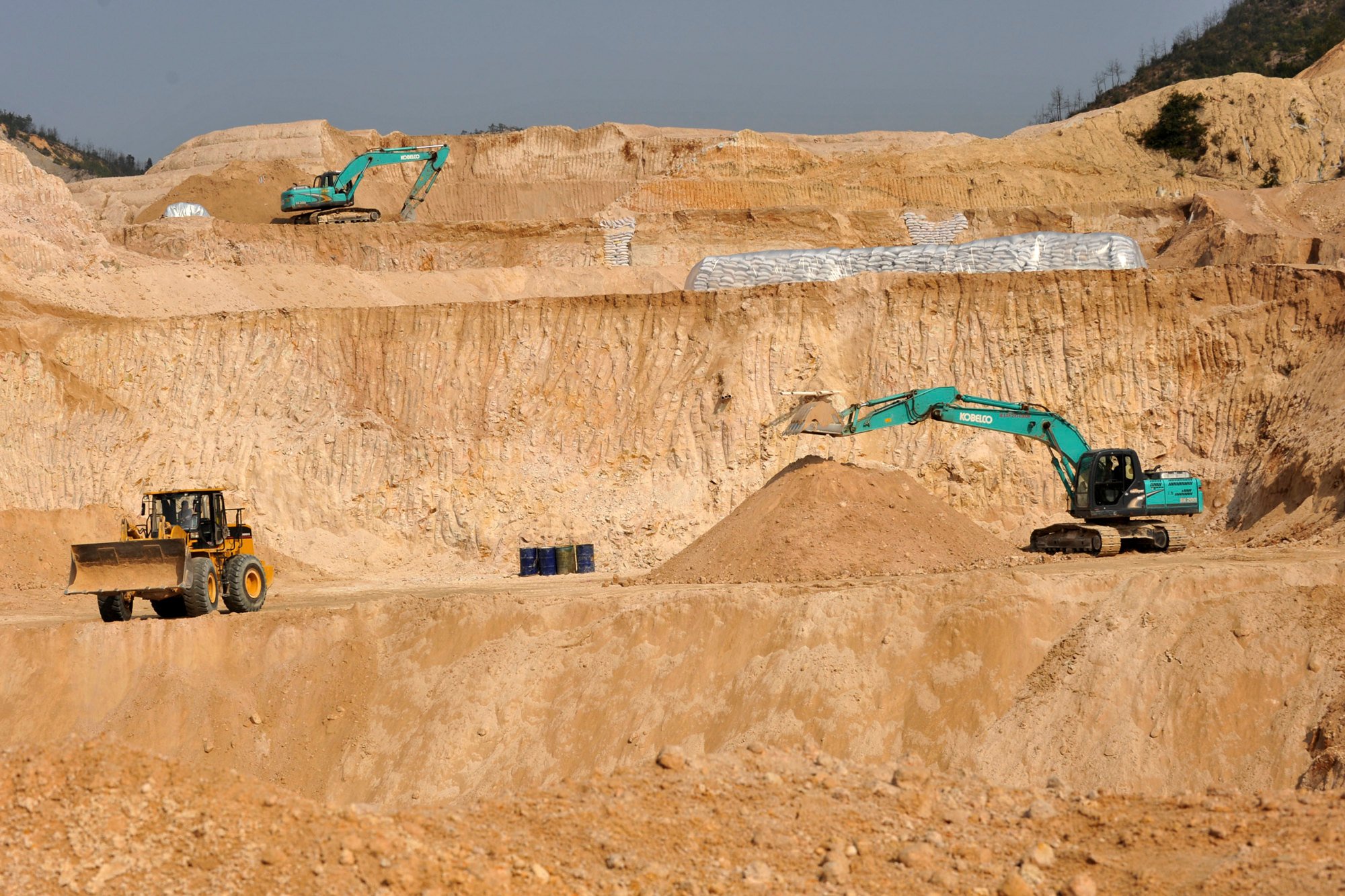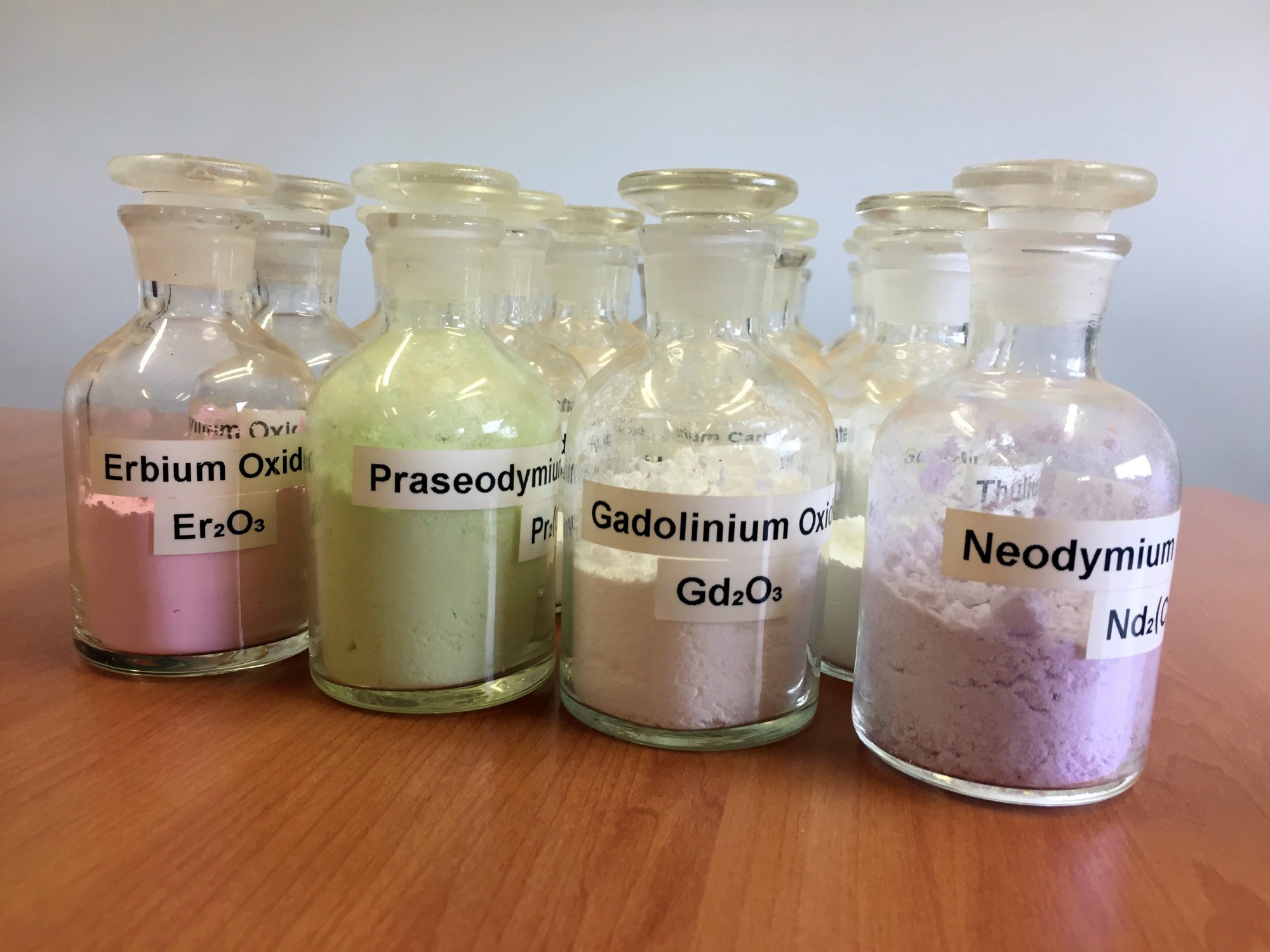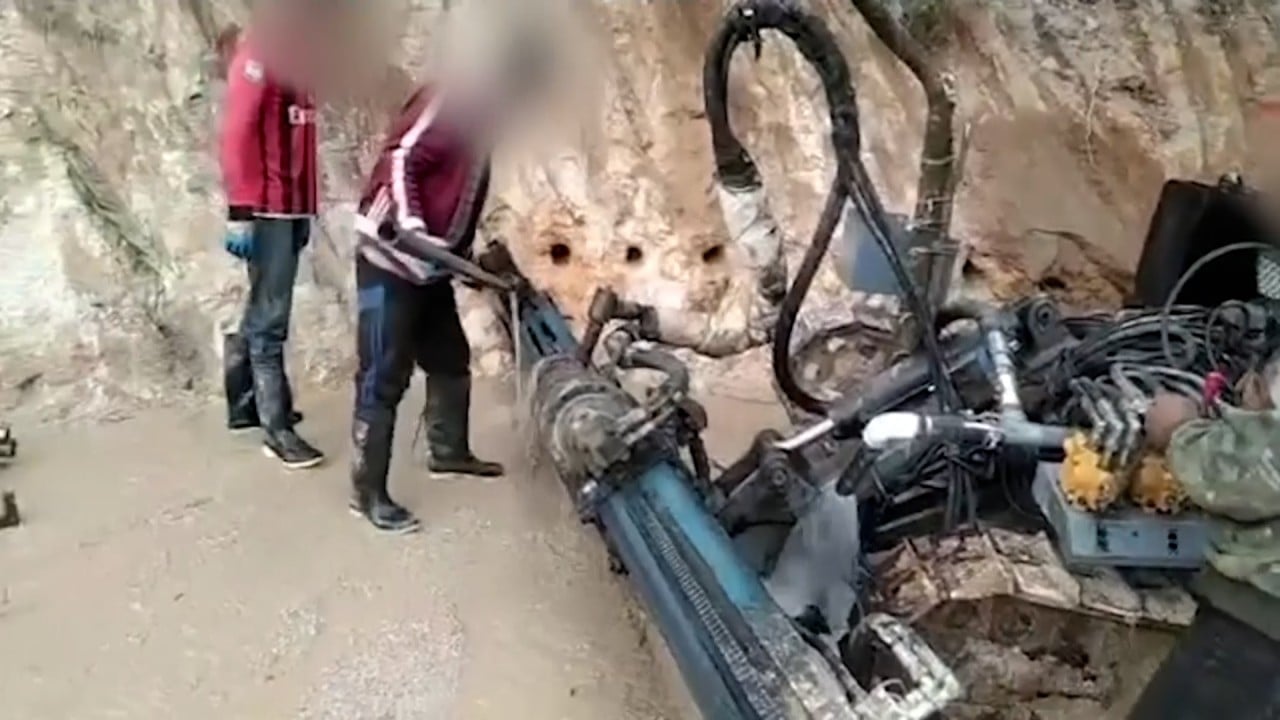
Malaysia’s rare earths ambition fuels Chinese displeasure fears, ‘betrayal’ cries over radioactive waste
- Green advocates are outraged that Malaysia is deepening ties with Australian mining giant Lynas despite concerns over environmental harm
- Malaysia’s ambition to grow the industry risks angering China, the world’s largest producer of rare earths
“The betrayal is so obvious, there is no need to say it,” said Tan Bun Teet, chairman of the Save Malaysia Stop Lynas (SMSL) group, which once leaned on support from politicians in Anwar’s Pakatan Harapan coalition to shut down the plant.
Malaysia pizza chain to rebrand as widening boycott over Israel-Gaza war bites
Critics have argued that not enough has been done to properly manage the plant’s radioactive waste, which has accumulated to about 1.2 million tonnes since operations began in 2012, according to government data, and is being stored in a temporary disposal facility.
Lynas did not immediately respond to a request for comment.
The company has maintained that the waste produced by its plant contains a “very low level” of naturally occurring radioactive material.

In an October 24 filing with the Australian stock exchange, the company said it would double its investment in research and development in Malaysia to 1 per cent of Lynas Malaysia’s gross sales to develop a method to remove the radioactive aspect of the waste under the supervision of the country’s Atomic Energy Licensing Board.
The process involves extracting thorium – an abundant mineral used in heat-resistant paints and aerospace materials – which the government says would remove the radioactive element from the Lynas plant’s waste.
But the government has been called out for taking Lynas’ word on the process when it is still confined to laboratory testing and there is no clear timeline for its scaling up for industrial use.
“[Lynas] had a decade to address the problem of radiation in the waste but did not,” said Jehan Abu Bakar, chair of the Pahang chapter of the Malaysian Nature Society and a long-time opponent of the Lynas plant.
‘Frustrating’: Anwar’s Palestinian cause risks overshadowing Malaysian reforms
“Right at the last minute when their licence renewal was up, they came up with this so-called solution. The most disappointing thing is that the government believed them,” Jehan said. “I know it’s a scramble to get rare earths now. China wants it, Japan wants it, the whole world wants it.
“Rare earths are better left alone. They should stay there in the earth because I believe the detrimental outcome [of mining them] is bigger than the dollars and cents that we will be getting.”
Trust deficit
Concerns over radioactive waste from Lynas’ plant, as well as further exploitation of the country’s rare earth reserves, stems from a much earlier incident in the neighbouring state of Perak, where thousands of people were potentially exposed to toxic radioactive waste from rare earth extraction at a factory run by a subsidiary of Japanese industrial giant Mitsubishi in the 1980s.
Residents of villages near the factory filed a suit against the company, Mitsubishi Chemical, claiming that exposure to the radioactive waste and pollution had led to higher incidences of cancer, birth defects and breathing difficulties.
Malaysian Islamists say ‘deviant’ Coldplay shouldn’t hold gig given war in Gaza
Though the residents lost the case, the factory eventually closed in 1994. The clean-up reportedly involved shifting an estimated 16,000 tonnes of radioactive waste and contaminated soil to a nearby disposal site, which is still a restricted area currently due to the potential exposure to toxic radioactivity.
To this day, critics remain unconvinced that the government is able to enforce existing environmental laws and regulations after Lynas’ alleged failure to deliver on promises to build a permanent waste disposal facility and repurpose the waste for other applications such as producing soil conditioner.
In its 2023 environmental, social and governance report, published in October, Lynas said construction on the permanent disposal facility was progressing “well”, with the completion of initial cells and placement of the first batch of waste materials to be completed within its 2023 financial year.
“Today [Lynas] say they have found a new formula, and their early findings at the laboratory level are that they can extract the radioactive elements from the waste,” Kota Melaka lawmaker Khoo Poay Tiong said during a debate in parliament on Thursday. “Proof of concept is not something that is definite. They said they need two years from proof of concept to commercialise their results. My question … can Lynas be trusted?”
Despite Malaysia’s chequered past with rare earths, the government sees the potential to grow a new and significant revenue base by developing the industry.
Anwar told parliament in September that the industry could contribute as much as 9.5 billion ringgit (US$2 billion) to Malaysia’s gross domestic product in 2025, along with nearly 7,000 new jobs.
The global rare earth market is estimated to hit a value of US$14.25 billion by 2030, nearly triple the value of US$5.37 billion in 2022, according to data from US-based research and consulting firm Verified Market Research.
Developing a local rare earth industry is a “useful method” to diversify the country’s income beyond tax reforms and slashing its burgeoning subsidy bill, said Halmie Azrie, a senior analyst with government affairs consultancy Vriens & Partners.
Fowl business? Malaysians face higher chicken prices as Anwar eyes subsidy cuts
The plan could also prove a political boon to Anwar’s unity government, which has struggled to secure support from the Malay-Muslim majority base, as most of the rare earth deposits identified are in either opposition-held states or semi-urban or rural areas with a significant Malay majority, Halmie said.
“This could potentially be a game changer in terms of creating new jobs and winning over votes in the next general election for the current unity government if done properly,” he told This Week in Asia.
Risk and reward
Accomplishing that, however, would involve a complicated maze of comprehensive planning and regulatory enforcement, adoption of advanced technologies to mitigate environmental harm and securing the buy-in from local residents and environmental groups in areas that would be involved in the mining and refining of rare earths, they said.

“The decision for Malaysia to develop a local rare earth industry involves a complex balancing act and weighing of factors on potential economic benefits, the environmental concerns … and the social impacts,” said Renard Siew, a climate change adviser with the Centre for Governance and Political Studies.
Diving headlong into the rare earth industry could also present some geopolitical risk for Malaysia, especially with its largest trading partner, China, the epicentre of global rare earth production.
China, which accounted for 70 per cent of global rare earth mining output in 2022 according to United States Geological Survey data, imposed a limited ban on rare earth exports to the US in July in response to sanctions in the ongoing trade war between the two superpowers.
Malaysia’s plan to develop its own rare earth industry would inevitably eat into China’s dominance, even if by a small amount, and likely trigger some displeasure from Beijing.

The trade-off, however, may be worth the effort.
“It would position Malaysia handsomely for the short term alongside other markets like Vietnam, India and Australia as alternative options … while the West sorts out its geopolitical competition with China,” said Halmie of Vriens & Partners.
Environmentalists argue that whatever windfall the country could reap from developing a rare earth industry would not be enough to offset the damage to both the environment and the health of communities exposed to toxic waste.
SMSL’s Tan added that, compared to China and Australia, Malaysia has a limited amount of land and that it would be better for it to be used for agriculture, especially with the country struggling to achieve domestic food security after recent shortages in rice and poultry products.
“The entire question is, do you have the expertise and capital to go through the processing, to set up the facility for the processing?” Tan said. “So to count the chickens before they hatch … [the government] needs to come back down to earth and evaluate our own capabilities first.”


